Recent developments showed that Türkiye was not prophesizing when warning about Israel’s expansionist policies endangering regional security. The fall of the Assad regime in Syria has aggravated already tense relations between Türkiye and Israel, with their conflicting interests in Syria pushing the relationship toward a possible collision course.
Türkiye, which long backed groups opposed to Assad and urged the latter to reconcile with them, has emerged as a key player in Syria and is advocating for a stable and united Syria in which a central government maintains authority over the whole country. It welcomed a breakthrough agreement that Syria’s new interim government signed this week with the SDF, dominated by the terrorist group YPG, to integrate with the Syrian government and army.
Israel, on the other hand, remains deeply suspicious of Syria’s interim president, Ahmad al-Sharaa, often pointing to his roots as what it calls “jihadist,” using a common warped narrative in the Western circles not fully embracing new Syria. It’s also wary of Türkiye’s influence over Damascus and appears to want to see Syria remain fragmented after the country under Assad was turned into a staging ground for its archenemy, Iran and Tehran’s proxies.
“Syria has become a theater for proxy warfare between (Türkiye) and Israel, which clearly see each other as regional competitors,” said Aslı Aydıntaşbaş of the Washington-based Brookings Institute. “This is a very dangerous dynamic because in all different aspects of Syria’s transition, there is a clash of Turkish and Israeli positions.”
Following Assad’s fall, Israel seized territory in southern Syria, which Israeli officials said was aimed at keeping hostile groups away from its border. The new Syrian government and the United Nations have said Israel’s incursions violate a 1974 cease-fire agreement between the two countries and have called for Israel to withdraw. Israel has also conducted airstrikes targeting military assets left behind by Assad’s forces and has expressed plans to maintain a long-term presence in the region.
Analysts say Israel is concerned over the possibility of Türkiye expanding its military presence inside Syria. Since 2016, Türkiye has launched operations in northern Syria to push back YPG terrorists linked to PKK, which have claimed thousands of lives in terror attacks in Türkiye since the 1980s. The Turkish operations to back Syrian opposition also crippled Daesh, another terrorist group which seized some key towns in northern Syria. Türkiye still maintains influence in the north of the country through military outposts and alliances with groups that opposed Assad.
Turkish defense officials have said Türkiye and Syria are now cooperating to strengthen the country’s defense and security and that a military delegation will visit Syria next week. Nimrod Goren, president of the Mitvim Institute, an Israeli foreign policy think tank, said that unlike Türkiye, which supports a strong, centralized and stable Syria, Israel at the moment appears to prefer Syria fragmented, with the belief that could better bolster Israel’s security.
He said Israel is concerned about al-Sharaa and his “Islamist” ties and fears that his consolidated strength could pose what Israel has called a “jihadist threat” along its northern border.
Israeli officials say they will not tolerate a Syrian military presence south of Damascus and have threatened to invade a Damascus suburb in defense of members of the Druze minority sect, who live in both Israel and Syria, after short-lived clashes broke out between the new Syrian security forces and Druze armed factions. The distance from Damascus to the Israeli-controlled Golan Heights is about 60 kilometers (37 miles).
Türkiye and Israel once were close allies, but the relationship has been marked by deep tensions under Turkish President Recep Tayyip Erdoğan for more than two decades, despite brief periods of reconciliation. Erdoğan is an outspoken critic of Israel’s policies toward the Palestinians, while Israel has been angered by Erdoğan’s support for the Palestinian cause.
Following the war in Gaza, Türkiye strongly denounced Israel’s military actions, announced it was cutting trade ties with Israel, and joined a genocide case South Africa brought against Israel at the U.N. International Court of Justice.
Warning to Israel
Erdoğan issued a thinly veiled warning against Israel last week, saying: “Those who seek to provoke ethnic and religious (divisions) in Syria to exploit instability in the country should know that they will not be able to achieve their goals.”
Last week, factions allied with the new Syrian government engaged in clashes with the Assad loyalists, and subsequent violence reportedly killed civilians from the Alawite community, which Assad and his loyalists hailed from. Erdoğan strongly condemned the violence and suggested the attacks were aimed at “Syria’s territorial integrity and social stability.”
Israel’s involvement in Syria is deepening, with the country pledging protection and economic aid to the Druze community in southern Syria at a time of heightened sectarian tensions.
Al-Sharaa was somewhat conciliatory toward Israel in his early statements, saying that he didn’t seek a conflict. But his language has become stronger. In a speech at a recent Arab League emergency meeting in Cairo, he said that Israel’s “aggressive expansion is not only a violation of Syrian sovereignty, but a direct threat to security and peace in the entire region.”
A report from the Institute for National Security Studies, a think tank led by a former Israeli military intelligence chief, suggested that Israel could benefit from engaging with Türkiye, the one regional power with considerable influence over Syria’s leadership, to reduce the risk of military conflict between Israel and Syria.









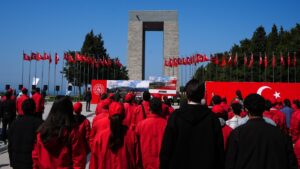



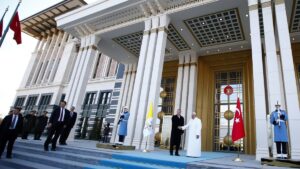
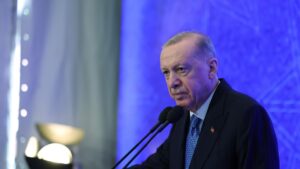
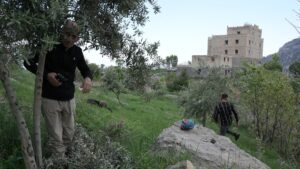






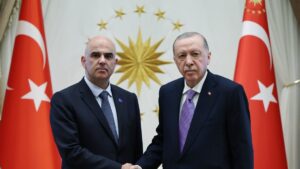

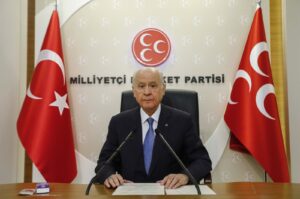
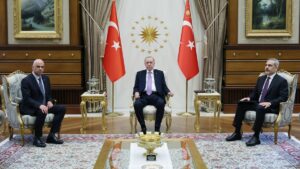


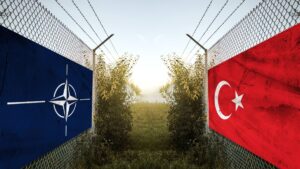



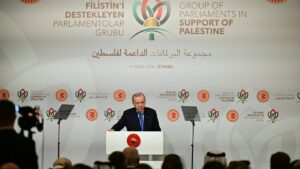

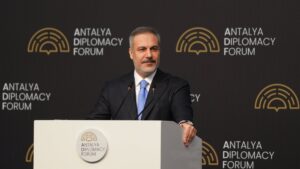






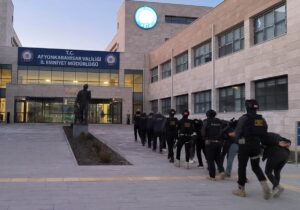

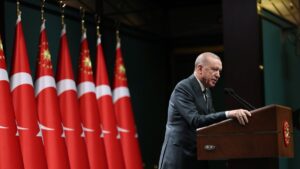

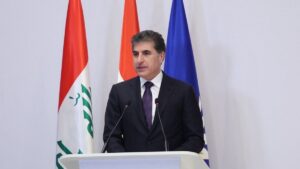






Be First to Comment